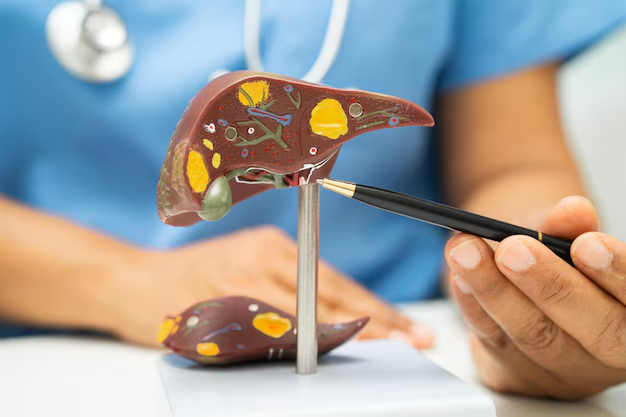Understanding and Managing Fatty Liver Disease: Effective Strategies for a Healthier Liver
Fatty liver disease is increasingly common, affecting roughly 25% of the global population. This silent condition often goes unnoticed until a routine checkup reveals its presence. The good news is that with dedication and informed lifestyle choices, you can actively manage and potentially reverse fatty liver disease. Here, we explore what fatty liver disease entails, its causes, and actionable steps you can take towards a healthier liver.
What Is Fatty Liver Disease?
Defining the Condition
Fatty liver disease occurs when there is an excess accumulation of fat in liver cells. This build-up can lead to liver inflammation, resulting in more severe conditions if left unmanaged. Understanding the types of fatty liver disease is crucial for addressing it effectively:
- Non-Alcoholic Fatty Liver Disease (NAFLD): This is the most common form and is not linked to heavy alcohol use.
- Alcoholic Fatty Liver Disease (AFLD): As the name suggests, this condition is associated with excessive alcohol consumption.
Identifying Symptoms
Often asymptomatic in its early stages, fatty liver disease can progress without noticeable signs. However, if symptoms do occur, they might include:
- Fatigue
- Abdominal discomfort or pain
- Unexplained weight loss
Causes and Risk Factors
Lifestyle and Diet
A combination of poor dietary choices and lifestyle habits often lies at the heart of fatty liver disease development. Contributing factors include:
- High-Fat Diets: Consuming excess fats, especially saturated and trans fats.
- Sedentary Lifestyle: Lack of physical activity contributes to fat accumulation.
- Obesity and Metabolic Syndrome: Being overweight or obese increases your risk.
Genetic and Biological Factors
Genetics can also play a role. Some people may have a family history of liver disease, making them more susceptible. Additionally, certain medical conditions like type 2 diabetes or high cholesterol can predispose someone to fatty liver disease.
Effective Lifestyle Changes
Dietary Adjustments
Adopting a liver-friendly diet is one of the most effective strategies to tackle fatty liver disease. Consider incorporating the following:
- Balanced Diet: Focus on whole foods, such as fruits, vegetables, whole grains, and lean proteins.
- Reduce Sugar Intake: Cut back on added sugars found in sodas, sweets, and processed foods.
- Healthy Fats: Opt for unsaturated fats like those found in olive oil, nuts, and fish.
Exercise and Physical Activity
Regular physical activity is vital. Not only does it help reduce liver fat, but it also improves overall metabolic health. Here are some activity ideas:
- Aerobic Exercise: Engage in activities such as walking, cycling, or swimming.
- Strength Training: Incorporate weight lifting or resistance exercises into your routine.
- Consistency Over Intensity: Aim for at least 150 minutes of moderate exercise weekly.
Monitoring and Health Management
Regular Medical Check-Ups
Routine health screenings can help catch fatty liver disease early and monitor its progression:
- Liver Function Tests: Simple blood tests can assess liver health.
- Imaging Tests: Ultrasounds or MRIs may be used for more detailed evaluations.
Partnering With Healthcare Providers
Having a supportive healthcare team can make managing fatty liver disease more approachable. They can provide guidance, monitor progress, and personalize plans to fit your needs.
The Role of Mental Health and Well-being
Stress Management
Chronic stress can negatively impact liver health by affecting metabolic processes. Consider:
- Mindfulness Practices: Engage in yoga, meditation, or deep-breathing exercises.
- Adequate Sleep: Aim for 7-9 hours of quality sleep each night.
- Social Connections: Maintain a strong support network of family and friends.
Supplements and Natural Aids
Exploring Natural Options
While lifestyle changes are the cornerstone of managing fatty liver disease, some individuals explore additional natural supplements:
- Coffee: Regular coffee consumption has been linked to improved liver health.
- Milk Thistle: Known for its liver-protective properties, but always consult a healthcare provider first.
- Omega-3 Fatty Acids: Found in fish oil, these may aid in reducing liver fat.
Practicing Sustainability in Health
Long-Term Commitment
Sustainable health isn't about quick fixes but rather lifelong commitments to better choices:
- Set Realistic Goals: Establish achievable health objectives that motivate without overwhelming.
- Track Progress: Use journals or apps to monitor dietary and exercise habits.
- Health Education: Continuously learn about nutrition and exercise science to refine your approach.
Building a Supportive Network
Finding Community
Creating or joining a community of like-minded individuals can offer encouragement and accountability:
- Support Groups: Engage with local or online groups focused on liver health or general well-being.
- Family Involvement: Involve loved ones in your lifestyle changes—preparing meals together or exercising as a unit strengthens bonds and shares the journey.
Key Takeaways and Next Steps:
- 📝 Knowledge is power: Stay informed about fatty liver disease and its impact.
- 🍏 Focus on nutrition: Adopt a balanced diet with minimal processed foods.
- 🏃♀️ Move regularly: Aim for a mix of aerobic and strength exercises.
- 📅 Regular check-ups: Keep up with medical appointments and follow your healthcare provider's advice.
- 🧘♂️ Balance stress: Incorporate relaxation techniques and support networks to enhance mental health.
Incorporating these strategies can empower you to take active steps towards managing fatty liver disease. While reversing the condition may require patience and effort, adopting a comprehensive, holistic approach fosters long-term success and enhanced everyday health.

Related Articles
- a Liver Disease
- Can Fatty Liver Disease Be Reversed
- Can Liver Disease Be Cured
- Can You Get Liver Disease At 30
- How Can I Cure Fatty Liver Disease
- How Do I Cure Fatty Liver Disease
- How Long Can You Live With Graves' Disease
- How Long Can You Live With Kidney Disease
- How To Get Rid Of Fatty Liver Disease
- How To Reverse Fatty Liver Disease
